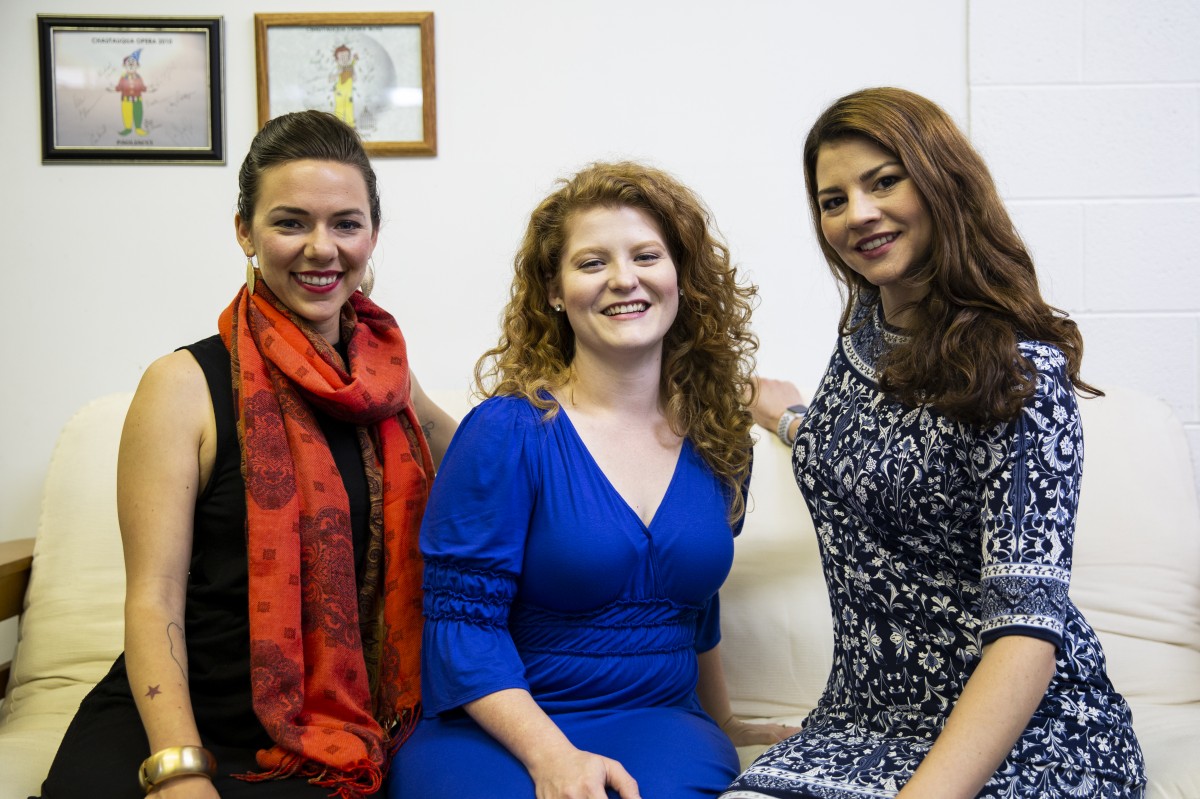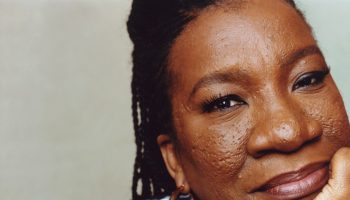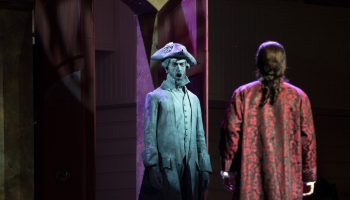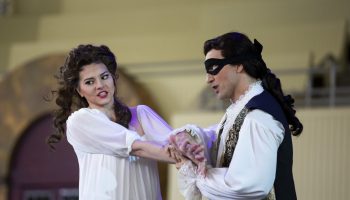The title character in Don Giovanni is a man, but the slew of dominant women is the cause of all the action.
The opera is about a serial seducer who assaults Donna Anna, sparking a series of events that lead to Don Giovanni’s downfall. Though it premiered in 1787, Mozart’s Don Giovanni remains relevant today.
“It was written hundreds of years ago, but seems, in many ways, like it was written yesterday because of the timeless issue of the abuse of power,” said Alexandra Rodrick, who plays Donna Elvira.
Don Giovanni shows people can only get away with so much before there are consequences, said Helen Hassinger, who plays Donna Anna. That main theme is applicable more than 200 years later with the start of the #MeToo movement, she said.
“It’s a perfect example of how a man has gotten away with abusing his power, abusing his position, for years and years and years,” Hassinger said. “We’re seeing the moment when that all catches up with him, and it brings about his downfall.”
Don Giovanni is one of three operas from the Mozart and da Ponte collaborations. In all three, women are central to the plot and are given the chance to showcase their power.
“It’s a more nuanced approach than just the women as objects being used,” Rodrick said. “They really are the (reason) for all the action in the show, and they are ultimately the ones bringing about Giovanni’s downfall.”
There are three leading ladies in Don Giovanni. Donna Anna is the first woman to appear on stage and is the reason for the events that follow.
Donna Anna is comparable to the modern-day whistleblower. When she is first assaulted, the reaction of that time would have been to remain silent and do nothing. Instead, she chooses to tell her father and risk her reputation to bring about justice, which Hassinger said is “very powerful.”
“She knows that she’s risking her status, her honor, her well being by announcing that someone has almost raped her,” Hassinger said.
The other two women in the show are the independent Donna Elvira and the lower-class bride-to-be Zerlina, played by Rebekah Howell. Giovanni meets Zerlina on her wedding day, and her strength is more subtle because she is given the choice to trust Giovanni and make a mistake, Howell said.
Though Zerlina is not part of upper-class society, she is presented as an educated woman who knows how to manipulate people, which was not a well-received way to depict servants at the time.
“The fact that she has the power to make that choice and that no one is forcing her to make this wrong choice is very interesting to me,” Howell said .
Donna Elvira arrives without a husband, brother or father to support or fight for her, which Rodrick said sets her apart from the other characters in the opera. Rodrick likes playing Donna Elvira because women usually end up falling in love or dying in operas.
“In opera, we get a lot of different versions of women written by men. It’s always a process of trying to find your own voice in that.”
-Alexandra Rodrick, Young Artist, Chautauqua Opera Company
Playing Donna Elvira allows Rodrick to portray a dynamic character who shows a lot of emotions without taking away the character’s power.
“Maybe (Don Giovanni) isn’t passing the Bechdel test — it is all about this man — but I think that we see she is independent from him in many ways and her choices are her own choices,” Rodrick said. “Even if (the women) rely on how and what (Giovanni’s) reactions are going to be, she can be extracted from the opera and still be an interesting woman and be a very powerful woman.”
Presenting the women of Don Giovanni in that compelling way is what makes the opera ahead of its time, Howell said. Mozart and da Ponte gave the three women of different class and personality equal importance.
“For women at that time, having the power to choose, ‘OK, this is my next step,’ I feel like that is very revolutionary,” Howell said.
Hassinger likes playing a character who acts like a real person who constantly changes her mind and deals with unexpected challenges. The inconsistency of Donna Anna is what draws Hassinger to the character, and she also likes singing at her male counterparts.
“Me, personally, I really think it’s super fun,” Hassinger said. “I love singing really high, loud notes right in men’s faces.”





